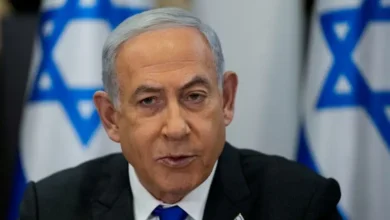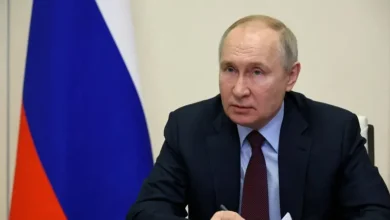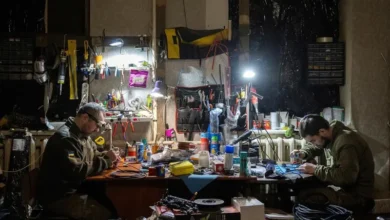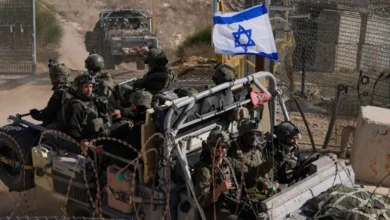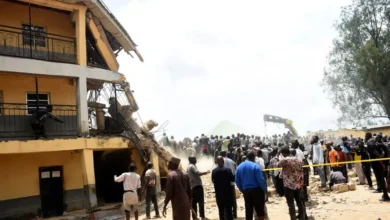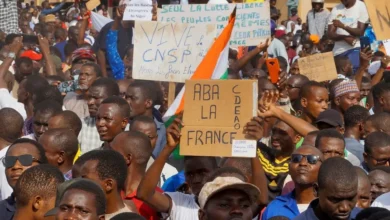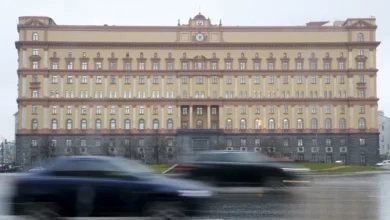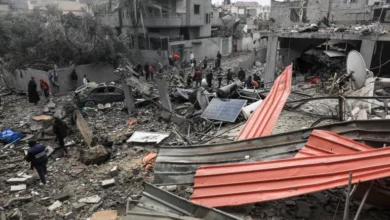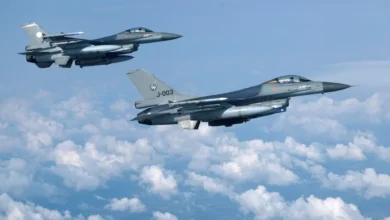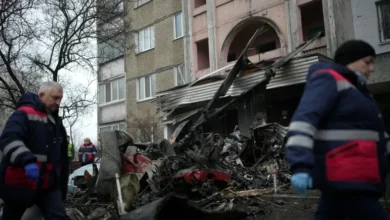UN resolution on Gaza aid criticised as ‘insufficient’, ‘meaningless’
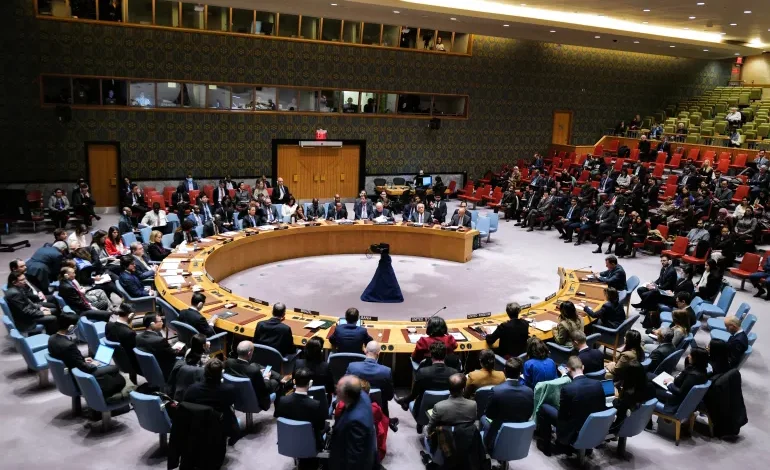
The United Nations Security Council passed a resolution on more aid for Gaza after several days of delays and weakened language that did not call for a ceasefire in the Israeli-Palestinian conflict, prompting a backlash with some describing it as “woefully insufficient” and “nearly meaningless”.
The resolution merely called for steps “to create the conditions for a sustainable cessation of hostilities”, and was adopted on Friday with 13 votes in favour, none against, and the United States and Russia abstaining.
It also demanded that all parties “facilitate and enable the immediate, safe and unhindered delivery of humanitarian assistance at scale” to Palestinian civilians.
It came after several postponements and difficult closed-door negotiations aimed at reaching a compromise in the language that would not be rejected by Washington, which vetoed another UNSC resolution calling for an immediate ceasefire earlier this month.
While UNSC resolutions are legally binding, Al Jazeera’s Alan Fisher said that Israel and other countries have ignored them in the past.
“The circumstances and the consequences for people refusing to follow these Security Council resolutions seem to be much worse for some countries than others,” said Fisher, reporting from occupied East Jerusalem.
Palestinian officials have said that more than 20,000 people, about 70 percent of them children and women, have been killed in Israel’s land, air and sea offensive in the Gaza Strip since the start of the war on October 7.
While top UN officials and international aid agencies welcomed the call for more humanitarian assistance, they said the resolution does not go far enough with the majority of the enclave’s population of 2.3 million displaced, the imminent threat of famine and the spread of diseases.UN Secretary-General Antonio Guterres said in a post on X that he hopes the resolution can improve the delivery of aid, “but a humanitarian ceasefire is the only way to begin to meet the desperate needs of people in Gaza and end their ongoing nightmare”.
The head of the World Health Organization (WHO), Tedros Adhanom Ghebreyesus, welcomed the resolution but reiterated the need for an “immediate ceasefire”.
Oxfam America’s Scott Paul stressed to Al Jazeera that aid to Gaza “can’t work while the bombs are falling and destroying houses, factories, farms, mills, [and] bakeries”.
“There’s no point in bringing in flour if you can’t bake bread with it. So the focus is entirely wrong,” Paul said.
International medical charity Doctors Without Borders (Medecins Sans Frontieres, or MSF) said the measure fell “painfully short” of what is needed to address the dire humanitarian crisis.
“This resolution has been watered down to the point that its impact on the lives of civilians in Gaza will be nearly meaningless,” MSF-USA Executive Director Avril Benoit said in a statement.
“Anyone with a conscience agrees that a massive scale-up of the humanitarian response in Gaza must take place without delay.”
All efforts to address the “unprecedented humanitarian catastrophe” in Gaza must be welcomed, said Agnes Callamard, Amnesty International’s secretary general, but emphasised that “nothing short of an immediate ceasefire is enough”.
She said the resolution “was watered down significantly” and “insufficient” and added that it is “disgraceful that the US was able to stall and use the threat of its veto power to force the UN Security Council to weaken a much-needed call for an immediate end to attacks by all parties”.
